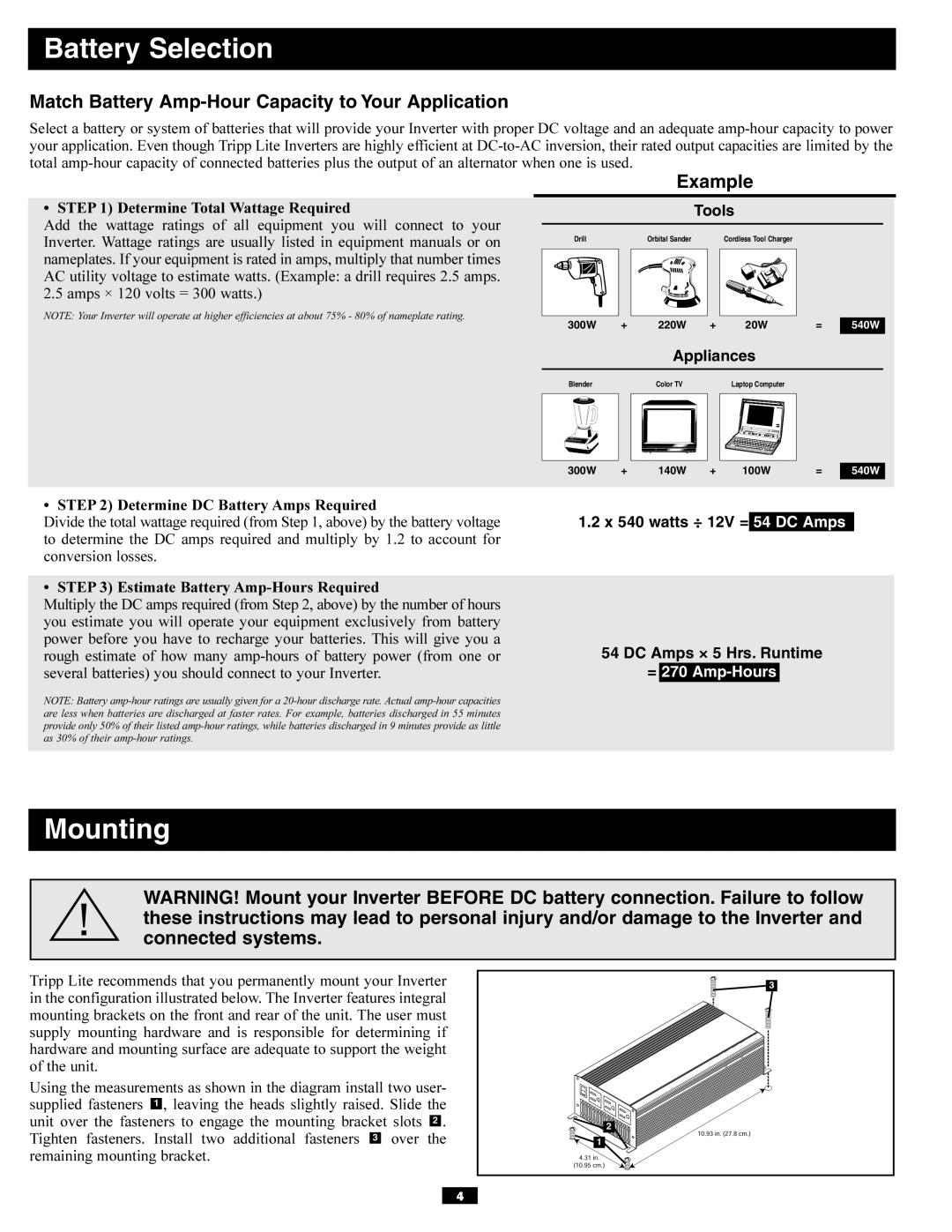PV700HF specifications
The Tripp Lite PV700HF is a reliable and versatile 700-watt power inverter designed to convert 12V DC battery power into 115V AC electricity. This product is ideal for a range of applications, including powering household appliances, camping gear, and emergency devices. Its robust design ensures that you can harness the energy stored in your car or RV battery while on the move or during power outages at home.One of the standout features of the PV700HF is its high-efficiency operation. With a 700-watt continuous output capability and a surge capacity of up to 1400 watts, it can easily handle the demands of various devices, from laptops and microwaves to televisions and small power tools. This inverting technology enables users to run multiple devices simultaneously without worrying about overheating or draining the battery too quickly.
The PV700HF employs advanced safety technologies, ensuring that both the inverter and the connected devices remain protected. Built-in features include short-circuit protection, overload protection, and thermal protection, which automatically shut the inverter down in case of an emergency. This level of safeguarding mitigates the risk of damage to both the inverter and your equipment.
Another appealing aspect of the Tripp Lite PV700HF is its compact design. Weighing just under five pounds and designed for portability, it can easily fit into your car trunk or RV without taking up much space. Additionally, the inverter comes equipped with an easy-to-read LED display that indicates input voltage, output wattage, and other operational parameters, making it user-friendly for anyone, regardless of technical skill.
For convenience, the PV700HF features multiple output options, including three AC outlets and two USB ports, allowing users to charge and power a variety of devices at the same time. The inclusion of USB ports is particularly advantageous for modern devices, such as smartphones and tablets, which have become an integral part of daily life.
In conclusion, the Tripp Lite PV700HF stands out as a robust and efficient power inverter that caters to diverse power needs. Its combination of high output capacity, compact design, and safety features make it an invaluable accessory for those who require dependable power on the go. Whether for recreational use, emergencies, or everyday applications, the PV700HF promises to deliver reliable performance in a convenient package.

